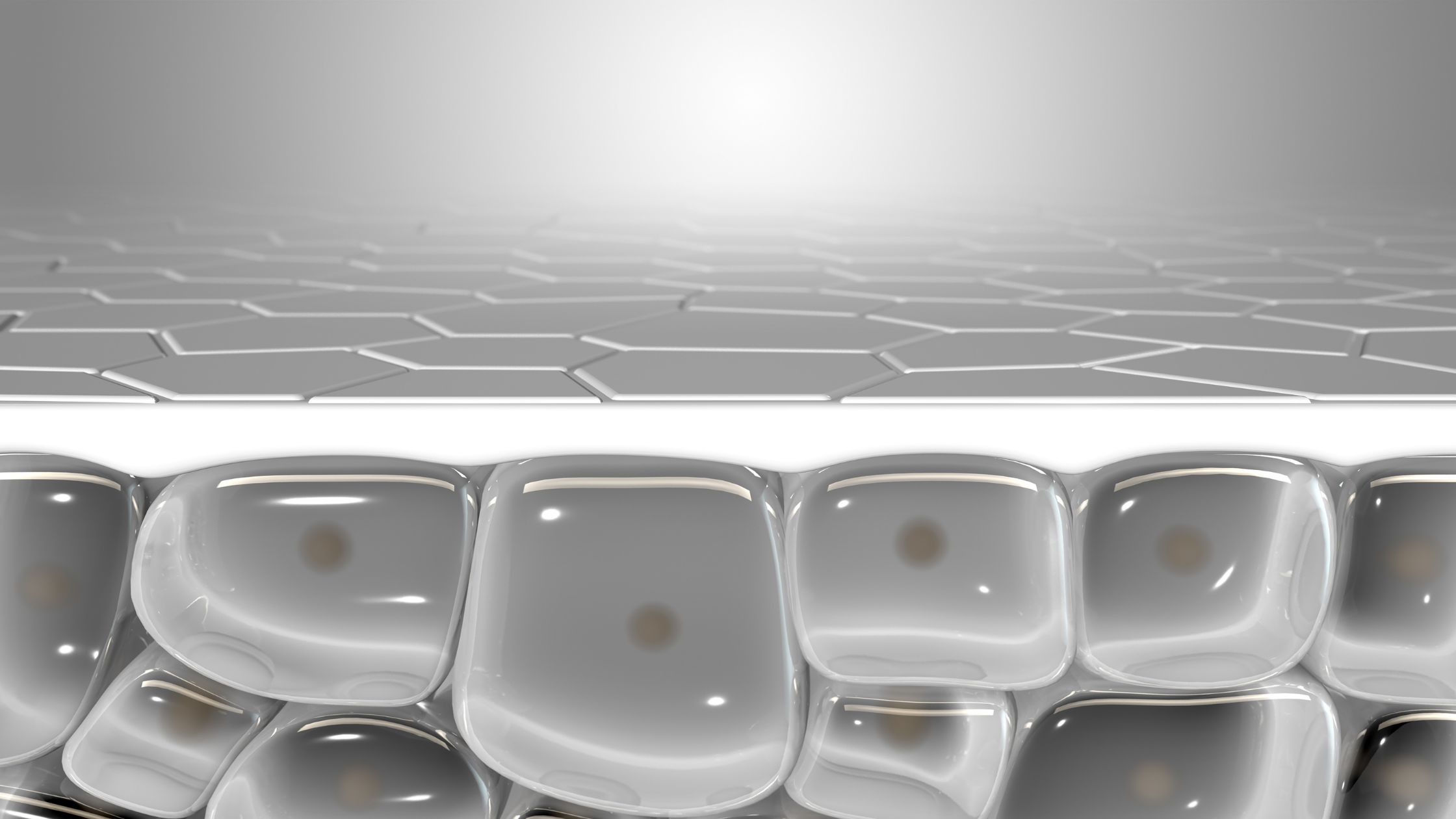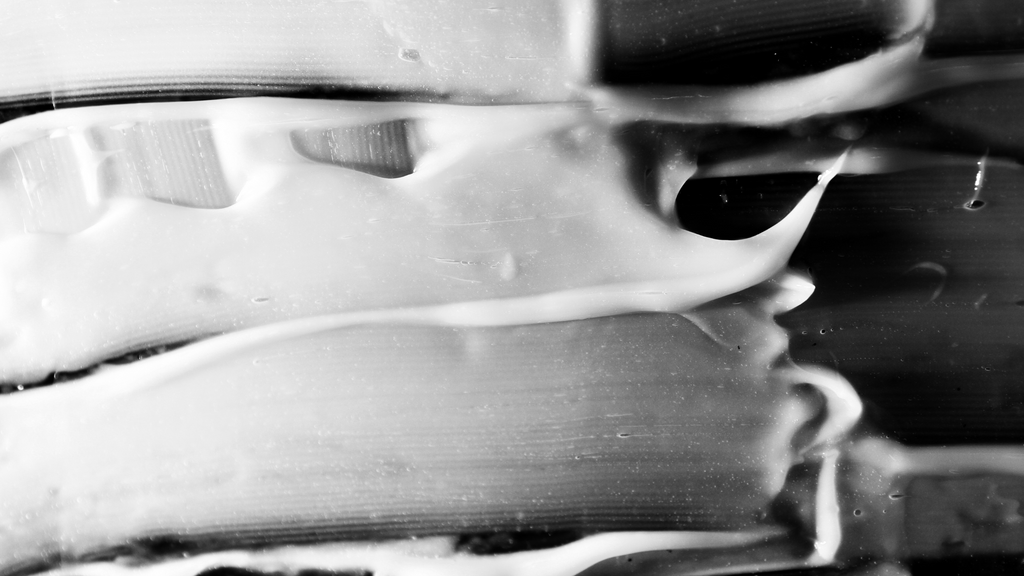Protecting Your Skin Barrier

Your skin’s barrier is like microscopic armor for your entire body. It’s extremely thin, but at the same time it protects you from contaminants and things that could potentially harm you. It also protects your insides from losing water and without it, you couldn’t survive!
What is a skin barrier?

Your skin is made up of many layers. The very top layer is called the stratum corneum and it contains skin cells called corneocytes that have keratin and natural moisturizers inside. These corneocytes are held together with lipids such as cholesterol, fatty acids, and ceramides. With the cells and the lipids, the stratum corneum looks a bit like a brick wall.
As thin as this top layer is, it is one of the many parts of your body that keeps you alive. The stratum corneum can block toxins and pathogens from entering your body. And internally, that brick wall keeps water inside of your body so you don’t become dehydrated.
As important as your skin barrier is, you need to take steps to protect it from damage.
Skin Barrier Damage

We are constantly being bombarded with external and even internal threats to our skin. The barrier can be damaged in many ways.
Causes of external skin barrier damage:
-
Extremely humid environments
-
Extremely dry environments
-
Sun exposure
-
Allergens and irritants
-
Pollution
-
Harsh chemicals
Causes of internal skin barrier damage:
-
Stress
-
Genetics
-
Over exfoliation
-
Allergies and sensitivities
Something that is affected by both internal and external factors is the acid mantle. This is the acidity of your skin. The acid mantle helps buffer the growth of bacteria and protects you from viruses. Health conditions such as diabetes can change the acidity of your skin, which weakens it.
There are signs that you may have damage to your skin barrier. For example, you could notice changes in your skin. Skin barrier damage is usually indicated by dry flaky skin, itchiness, rough patches, extreme sensitivity, infections, or even acne.
Skin Barrier Protection and Repair

In order to have the most healthy skin possible, you need to protect the skin barrier and repair it at any sign of damage. There are several different ways to do this.
pH Balance
Your acid mantle has a pH of around 5.7, but products have a wide range (3.7 is the most acidic and 8.2 is alkaline). When you use a product that is that off from your natural balance, it could throw your acid mantle off, and eventually damage the skin barrier. A pH that is off can cause skin conditions such as dermatitis or eczema.
Sometimes, your skin does need that extra help from acidic or alkaline products, but don’t overdo it! These products are intended to provide a quick fix and should be used sparingly. For example, don’t do home chemical peels more often than once per week (or less).
Simple Skincare
When it comes to skincare, more isn’t necessarily better. In fact, using too many products can actually weaken your skin barrier.
Exfoliation is key to having healthy skin, but exfoliation also means that you are sloughing off part of that barrier! Be sure to listen to your skin. If you notice that it is extremely irritated, scale back your exfoliation routine or use gentler chemical exfoliation products. Use soft brushes or cloths as opposed to something with stiff bristles.
Plant Oils for Skincare
With so many skincare products out there, it can be confusing. With all of the chemicals in our skin products, sometimes simple and natural is best.
Plants are made up of layers, just like our skin. And using plant based products, such as oils, can have huge benefits. These oils can add another layer of protection to lock moisture in. They also have antioxidant, anti-inflammatory, and antibacterial properties.
Qyral uses plant oils in many of our custom formulations. Some of these include:
-
Aloe Vera Leaf
-
Avocado Oil
-
Orange Essential Oil
-
Rosehip Oil
-
Sunflower Seed Oil
-
Tea Tree Oil
-
Jojoba Seed Oil
-
Sweet Almond Oil
-
Watermelon Seed Oil
Check out our ingredients page for detailed information about everything we use in various formulations.
Use Ceramides and Hyaluronic Acid

The good news about ceramides and hyaluronic acid is that these ingredients are easy to find on store shelves and in exclusive skincare products. But like anything, quality is important.
Ceramides are part of the lipids that help bind together the skin cells that make up the skin barrier. They are part of the mortar of that brick wall. Research has shown that using ceramides help improve problems that are caused by a damaged skin barrier.
Hyaluronic acid is another ingredient that can benefit the skin barrier. It is commonly found in moisturizers and works by binding and locking in moisture to your skin. What’s more is that it benefits both dry and oily skin types.
Qyral uses both of these ingredients in our formulations to help protect your skin’s barrier.
Don’t skimp on skincare!
The skin barrier is important when it comes to healthy skin and your health in general. If you don’t take care of it, you risk more than just a good complexion. One way to be sure that your skin barrier is in good condition is by using quality products.
Qyral’s products are formulated with skin barrier friendly ingredients and we take things a step further by giving you the precise ingredients you need for your exact skin type. When you take our skin assessment, we can match you to what you need to protect your skin and your unique skin barrier!